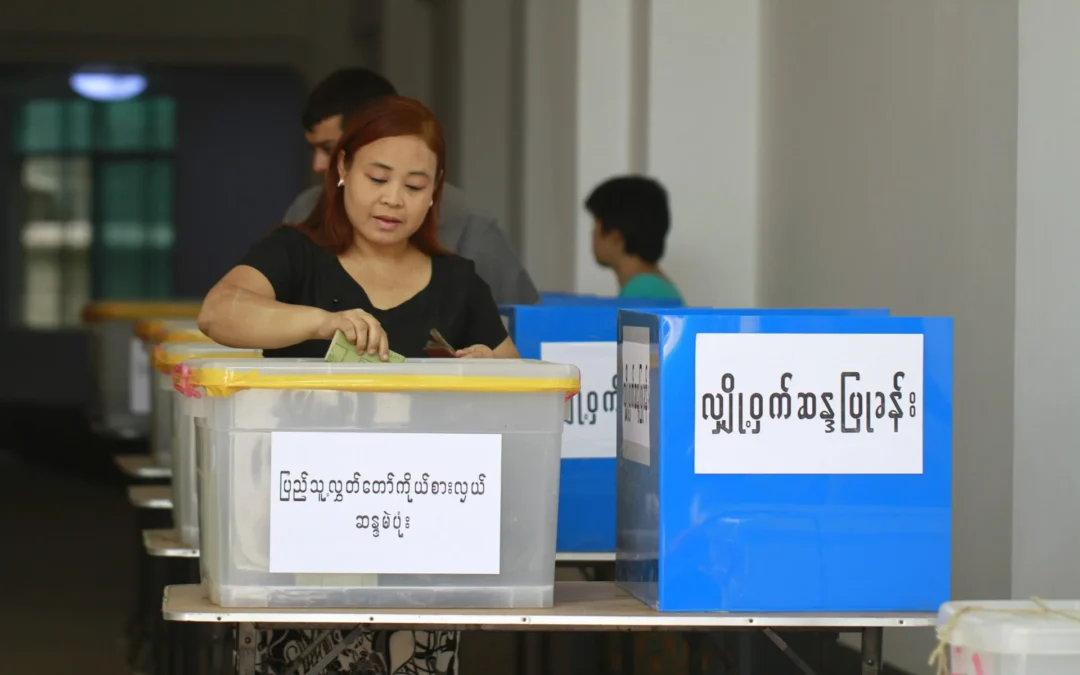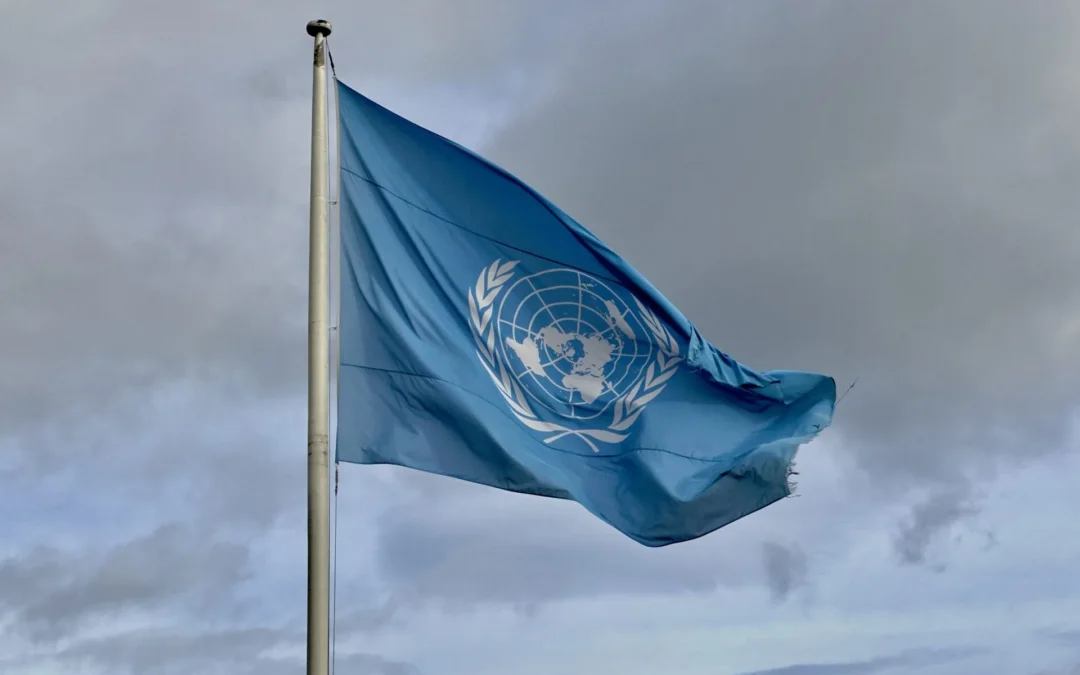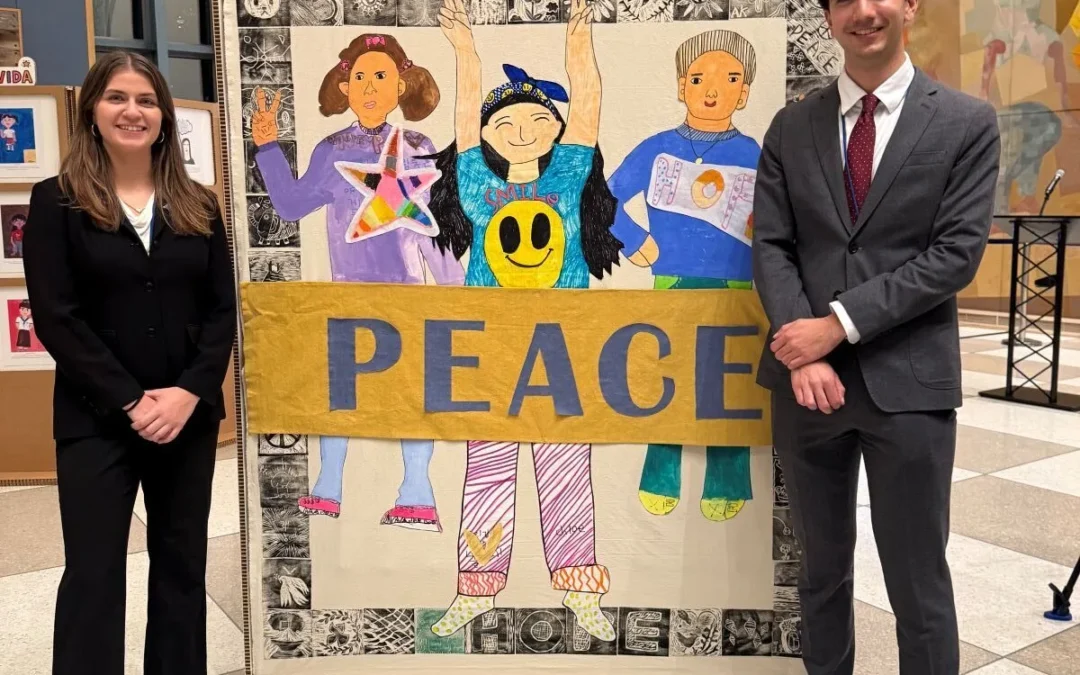With the arrival of the fall season, the 2024-2025 cohort of Programme Assistants at QUNO’s offices in both New York and Geneva prepared for their departure. Chelsea Comas and Ailih Weeldreyer wrapped up their tenure at QUNO NY, and Johan Cavert and Kaya Van der Horst finished their terms at QUNO’s Geneva office. All four of these bright young professionals contributed greatly to our work over the past year and demonstrated their capacities to learn and grow from their experiences. Thanks to them, the QUNO team has been able to meet the challenges of yet another trying year in international issues. We thank them sincerely for their work and wish them the best on what lies ahead!
In reflecting on their terms at QUNO, the departing Programme Assistants shared some parting thoughts:
“QUNO’s deep commitment to diplomacy, multilateralism, and peacemaking will serve as guiding light for me as I begin law school at Columbia University and continue to advocate for the recognition of environmental human rights that recognize the dignity and humanity of every person on our planet.” – Johan Cavert
“My year at QUNO has been full of learning opportunities that helped me grow both professionally and personally. It was particularly impactful to contribute to QUNO’s work on reparatory justice and the UN Permanent Forum on People of African Descent. This experience has shaped the way I approach advocacy, emphasizing people-centered strategies and the pursuit of positive peace. I am excited to carry these lessons forward as I begin my law studies at Elisabeth Haub School of Law at Pace University.” – Chelsea Comas
“Although there are countless memorable moments to choose from, the invigorating, buzzing energy of the Human Rights Council sessions always inspired me. It was a time where people from all around the world mobilized to collectively address human rights issues and I felt proud to be there as part of QUNO. While 2025 has proven to be a particularly challenging time for multilateralism, working at QUNO has shown me the power of human connection and I aspire to embed this practice in future work endeavors.” – Kaya Van der Horst
“I’m taking away from my time at QUNO a deep appreciation for the impact of sustained dedication to peace and for the power of human-to-human conversations. I am inspired by colleagues in the faith-based advocacy community who remain committed to peace and flourishing for all people over years and decades. It encourages me to maintain my own spirit of hope as I begin my career and envision a life dedicated to action for peace. In the second half of August, I’ll begin a new role with the World Student Christian Federation in the United States as their national organizer. I’m so grateful for all I’ve learned at QUNO and ready to utilize the relationships and knowledge I have built this year to connect Christian students in the US to advocacy for international peace and justice.” – Ailih Weeldreyer
As the members of the 2024-2025 PA cohort forge their own paths ahead, all of us at QUNO are excited to see them continue to advocate for peaceful and just societies.
Each year QUNO’s teams in both New York and Geneva welcome emerging professionals with a passion for peace and justice to contribute to our efforts as Programme Assistants. These 12-month appointments offer recent graduates and early-career professionals the opportunity to gain valuable experience working with multiple facets of the United Nations and the chance to learn from QUNO staff while contributing to our initiatives.

![PA2025(1)[1]](https://www.quno.org/wp-content/uploads/2025/10/PA20252011.png)





